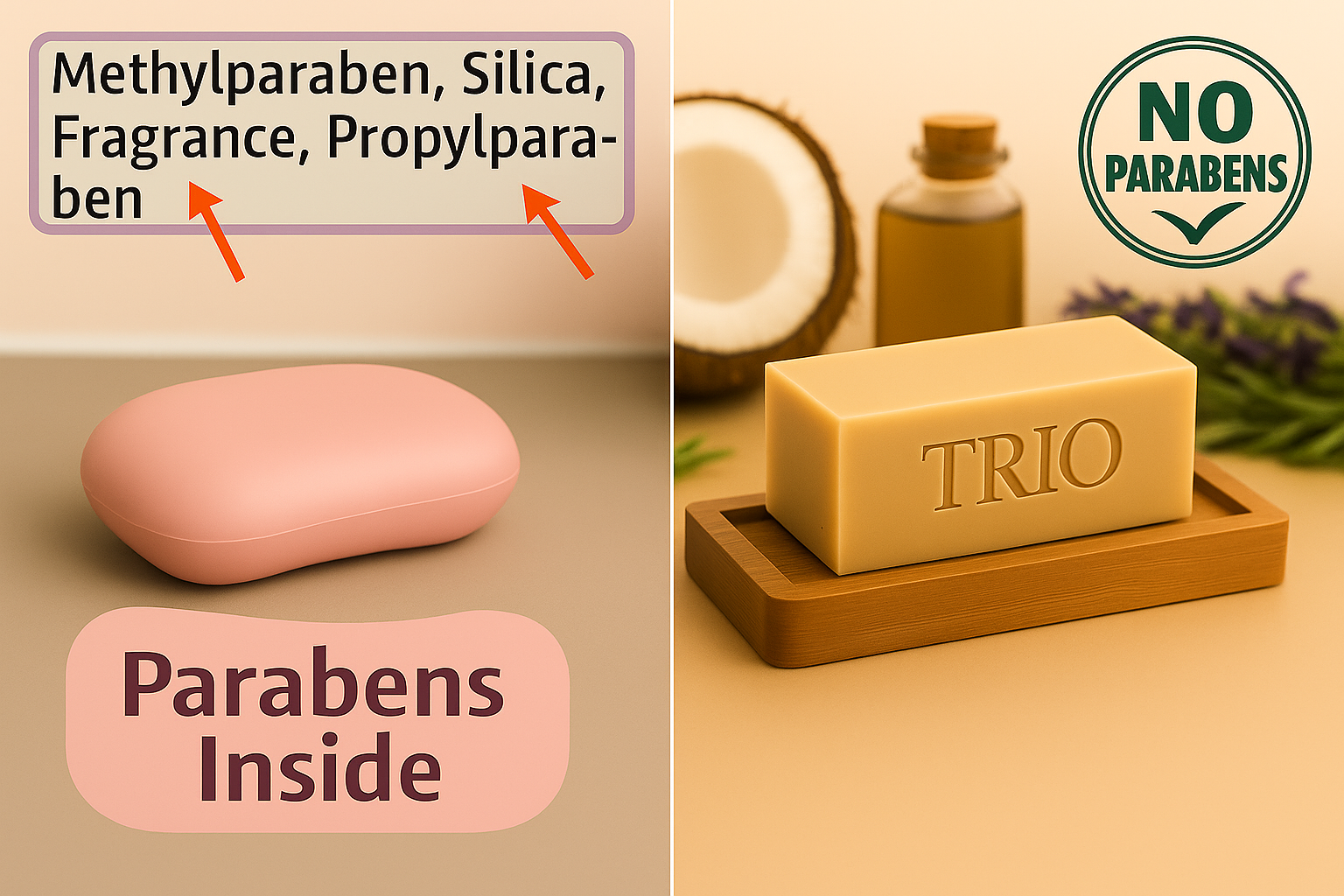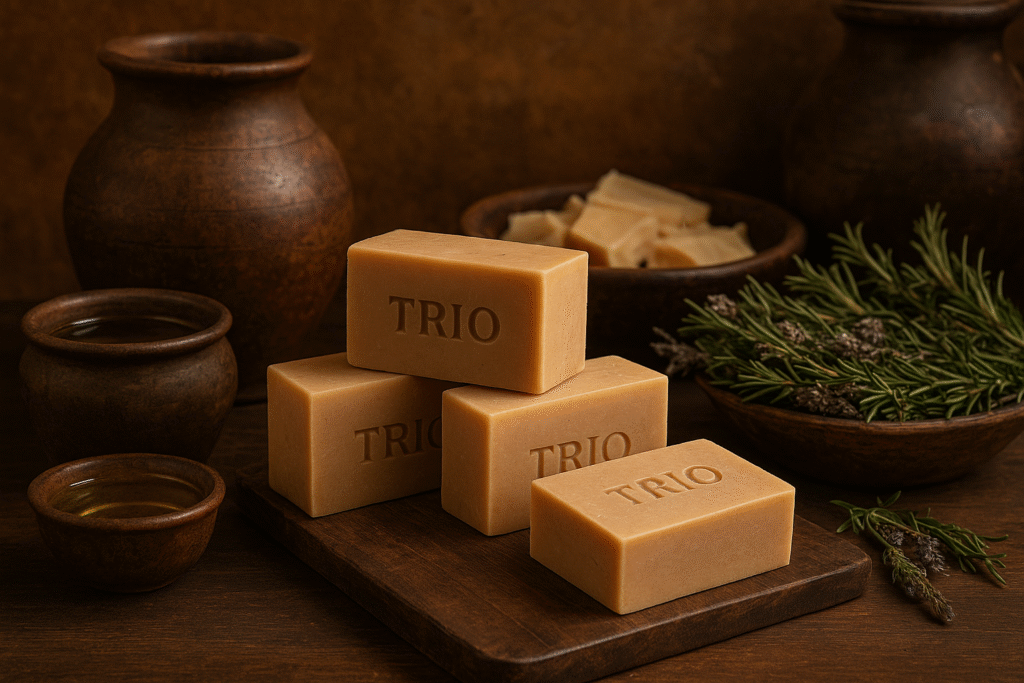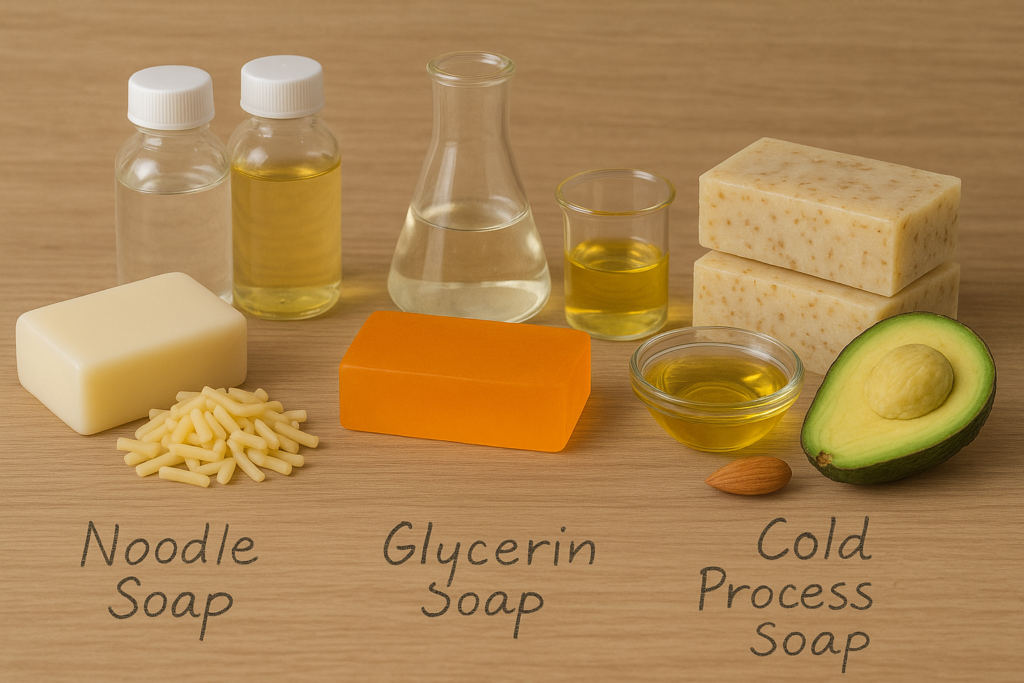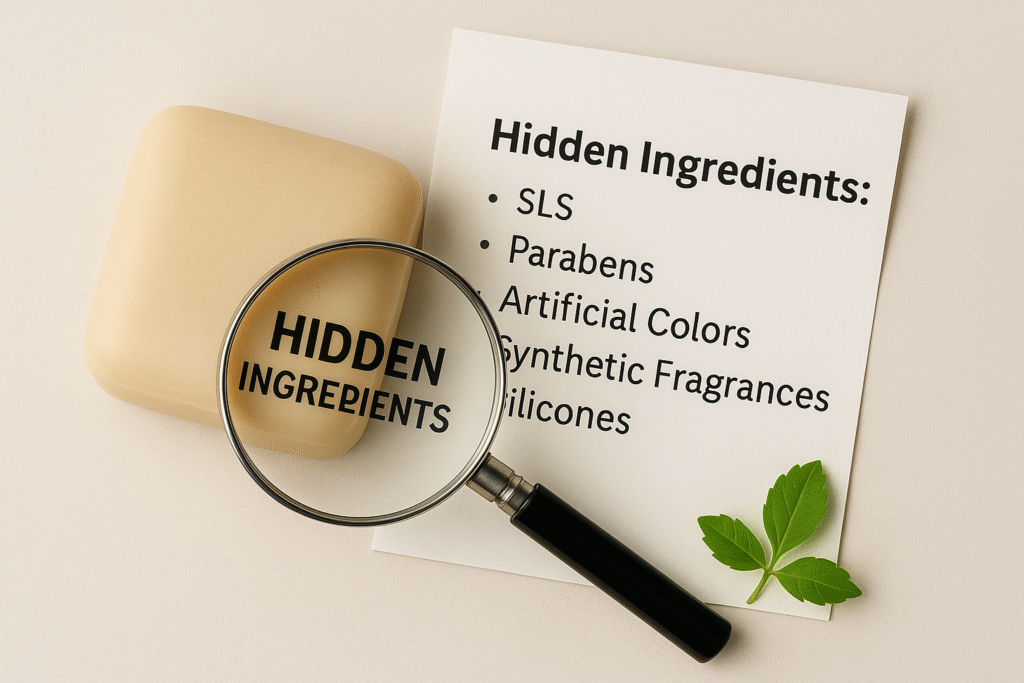Parabens in Soap: The Hidden Danger Lurking in Your Bathroom
Are your soaps and cosmetics truly safe? Discover what parabens are, why they’re used, and the potential harm they pose to your health and the environment.

What Are Parabens?
Parabens are synthetic chemical preservatives commonly used in personal care and cosmetic products like soaps, shampoos, conditioners, lotions, and makeup. They’re added to prevent microbial growth, ensuring products have a longer shelf life.
Common Parabens Found in Soaps:
- Methylparaben
- Ethylparaben
- Propylparaben
- Butylparaben
- Isobutylparaben
These names often appear at the bottom of ingredient lists, but their impact reaches far beyond what’s visible.
A Brief History of Parabens in Cosmetics
Parabens have been used since the 1920s and were once celebrated for their ability to stop mold and bacteria. However, over time, increasing studies have linked them to serious health concerns, leading many consumers and health experts to question their safety in everyday products.
Why Are Parabens Considered Dangerous?
- They Disrupt Hormones: Parabens can mimic estrogen by binding to estrogen receptors, potentially causing hormonal imbalance, fertility problems, early puberty in children, and increased risk of hormone-related cancers.
🧪 A 2004 study in the Journal of Applied Toxicology detected parabens in 19 of 20 breast tumor samples. - They Irritate Skin: Parabens can cause contact dermatitis, allergic reactions, and rashes—especially in sensitive skin.
- They Harm the Environment: Parabens washed into drains have been detected in marine organisms, raising red flags for ecosystem health. According to a study in Environmental Science & Technology, parabens were found in fish and bottlenose dolphins (source).
How to Read Soap Labels for Parabens
- Scan for ingredients ending in “-paraben”.
- Watch out for vague terms like “fragrance” or “perfume”.
- Prefer certified labels like Ecocert, USDA Organic, or COSMOS.
- Choose brands like TRiO Naturals that fully disclose ingredients.
Myth vs Fact: Clearing Common Misconceptions
| Myth | Fact |
|---|---|
| Parabens are safe in small amounts | They may accumulate and disrupt hormones over time |
| Only ingesting parabens is harmful | They can absorb through the skin into the bloodstream |
| Natural soaps can’t last without parabens | Cold process soaps are naturally self-preserving |
| Paraben-free means chemical-free | Some brands replace parabens with other harsh synthetics |
Scientific Research on Parabens
- Breast Tissue Study (2004): Parabens detected in breast tumors (Journal of Applied Toxicology).
- Bioaccumulation Evidence: Found in blood, urine, and breast milk (CDC report).
- Marine Life Contamination: Detected in dolphins and fish (Environmental Science & Technology).
- Hormonal Impact: Interferes with gene expression related to hormone activity (NCBI study).
Natural & Safer Alternatives to Parabens
- Tocopherol (Vitamin E)
- Grapefruit seed extract
- Potassium Sorbate
- Sodium Benzoate (low concentrations)
- Ecocert-approved preservatives like Geogard or Iscaguard PEG
TRiO Soaps avoid all synthetic preservatives by using the cold process method, which naturally preserves the soap and enhances skin benefits.
Comparison: Commercial Soaps vs TRiO Handmade Soaps
| Feature | Commercial Soap | TRiO Handmade Soap |
|---|---|---|
| Preservatives | Synthetic (Parabens) | None / Natural |
| Fragrance | Artificial | Essential Oils |
| Transparency | Often hidden | Fully disclosed |
| Shelf Life | 2–3 years | 1 year (naturally preserved) |
| Skin Impact | Harsh, drying | Gentle, nourishing |
Environmental Impact of Parabens
- Detected in aquatic animals like fish, dolphins, and polar bears.
- Found in soil and sediment near wastewater treatment zones.
- Present in water bodies due to incomplete filtration.
How to Switch to Paraben-Free Soaps
- Check for full ingredient disclosure.
- Avoid vague labels like “fragrance” or “safe chemicals.”
- Research small-batch, honest brands.
- Test products on your skin.
- Support soapmakers using cold process methods like TRiO.
Consumer Awareness Tip
Did you know? The term “fragrance” can legally contain over 3,000 undisclosed chemicals, including parabens and phthalates. Brands aren’t required to list them individually.
How TRiO Soaps Are Different
- Zero parabens, SLS, or synthetic fragrances
- Cold-processed using traditional techniques
- Nourishing oils, herbs, and essential oils
- Full ingredient transparency
- Small batch integrity. No shortcuts.
Say NO to Parabens. YES to Pure, Transparent Care.
Explore handcrafted, paraben-free soaps made with love and honesty at 👉 www.trionaturals.com



